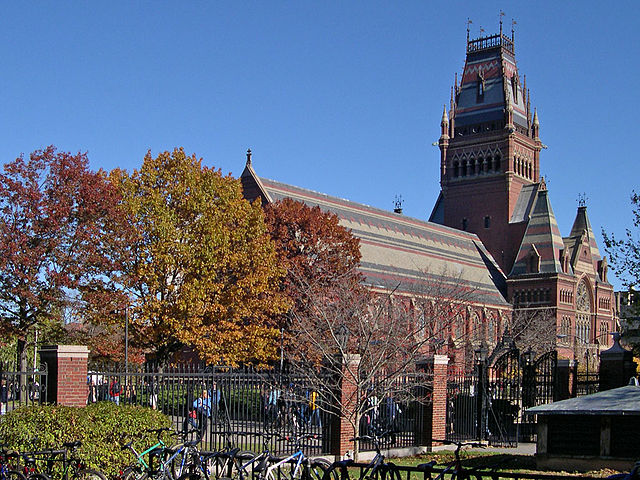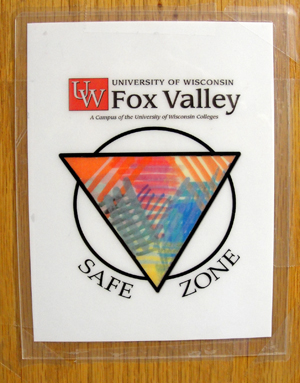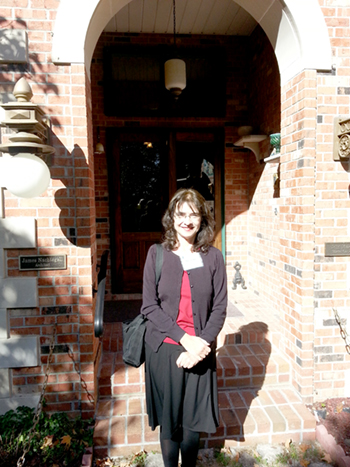 "Kink on Campus" by Mary Grabar, posted on December 10, 2012: For all the Bill O'Reilly of Fox News-watching, knuckle-dragging Neanderthals who believe that a student club for kinky sex is another sign of the end times, we have Inside Higher Ed that explains it all. You see, Harvard students need a BDSM (Bondage and Discipline, Sadism and Masochism) club for their emotional health and intellectual development.
"Kink on Campus" by Mary Grabar, posted on December 10, 2012: For all the Bill O'Reilly of Fox News-watching, knuckle-dragging Neanderthals who believe that a student club for kinky sex is another sign of the end times, we have Inside Higher Ed that explains it all. You see, Harvard students need a BDSM (Bondage and Discipline, Sadism and Masochism) club for their emotional health and intellectual development.
Besides, other cool Ivies, like Yale and Cornell, have had these for a while. These groups provide students with "a safe space during informal lunch or dinner meetings to talk about kinky sex and self-awareness."
And don't worry, parents! CNN reports that the club will provide "safety teams" for particpants.
We know about the need for "safe spaces" on university campuses, what with all those conservative professors chasing down and harassing feminists, gays, and anyone caught with a copy of the Communist Manifesto.
"As with most student clubs," explains Inside Higher Ed, "there’s an educational element to it." We know this because an expert on sex tells us:
“Most people grow up without receiving adequate information about sexuality from either their parents or from their schools,” [Debby] Herbenick, a sexual health educator at the Kinsey Institute, said. “Certainly if college students are practicing BDSM as part of their own sexual lives, then having accurate information may help them to practice BDSM more safely and to communicate effectively about it with partners.”
 (Kinsey would be the institute founded by the entomologist Alfred Kinsey, who did not transfer over knowledge about the sex lives of insects, but who interviewed pedophiles for his sex research.)
(Kinsey would be the institute founded by the entomologist Alfred Kinsey, who did not transfer over knowledge about the sex lives of insects, but who interviewed pedophiles for his sex research.)
And isn't college all about getting information? I mean important information, not stuff like dates of wars, quadratic equations, or grammatical parts of speech, but
how to give and receive clear consent, and how to manage pain and discomfort, for instance. But BDSM has some unique considerations. For example, Herbenick said, many people practicing BDSM create “contracts” between themselves and their partners – contracts that often are not legally enforceable.
Now that's one for the law school!
According to its constitution, Harvard College Munch (as it's called)
exists to promote a positive and accurate understanding of alternative sexualities and kink on campus, as well as to create a space where college-age adults may reach out to their peers and feel accepted in their sexuality.
In spite of the mental health stamp of approval and intellectual respect given to such clubs, a former student president did not want to give her name. The 2008 graduate who was president of one such club at a small Northeastern university said that:
being able to talk openly about her preferences helped her get “a much stronger sense” of her personal identity, and learn how to engage and communicate with her partner in healthy and productive ways.




 Okay, so Dissident Prof wonders: why is it not okay to call someone a name or make a joke that mentions ethnicity, but it's okay to horse-whip another student (if it's in the "contract")? Do the usual criteria of race, class, and gender come into play? Wouldn't these actions and words go beyond the standards of bullying now outlawed in all educational institutions across the land?
Okay, so Dissident Prof wonders: why is it not okay to call someone a name or make a joke that mentions ethnicity, but it's okay to horse-whip another student (if it's in the "contract")? Do the usual criteria of race, class, and gender come into play? Wouldn't these actions and words go beyond the standards of bullying now outlawed in all educational institutions across the land?  On a bright note, Appalachian State University offers a
On a bright note, Appalachian State University offers a 
